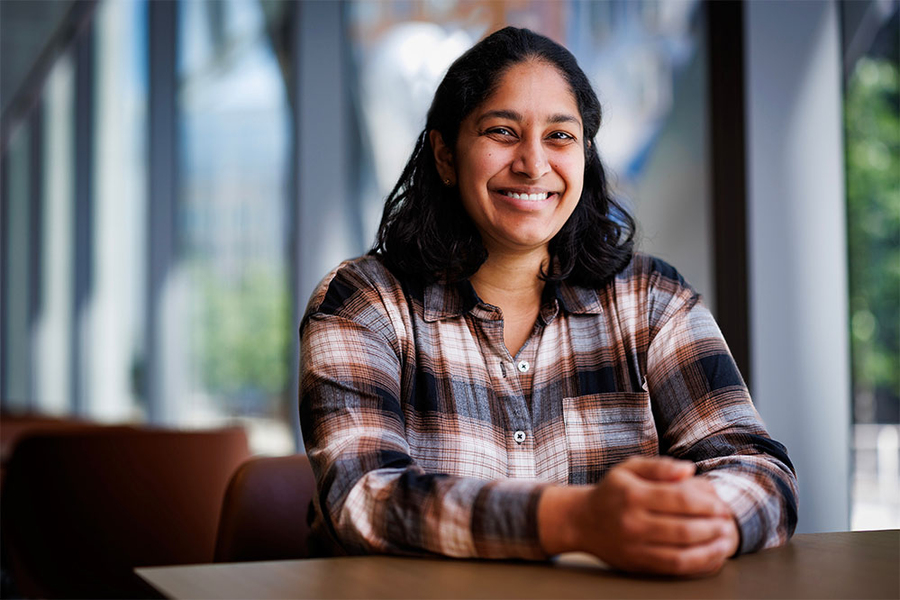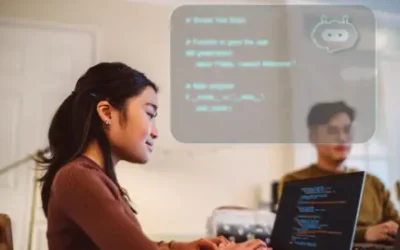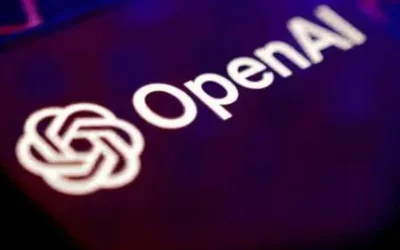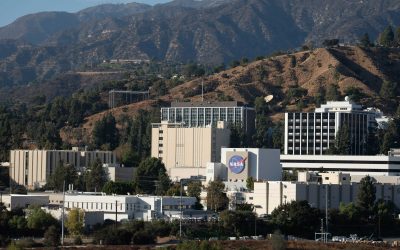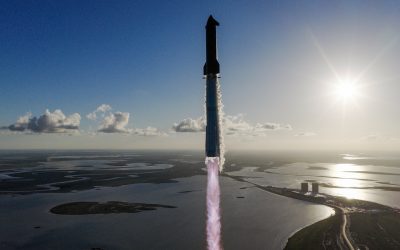Priya Donti’s biennial childhood excursions to India were far more than simple visits to extended family. These formative journeys ignited a profound motivation within her, a drive that continues to significantly influence both her research endeavors and her teaching philosophy today.
Currently the Silverman Family Career Development Professor in MIT’s Department of Electrical Engineering and Computer Science (EECS) and a principal investigator at the MIT Laboratory for Information and Decision Systems, Donti was particularly struck by the varying living standards she encountered. These observations stood in sharp contrast to her family home in Massachusetts, revealing profound disparities in how people reside.
Donti recognized from an early age the profound and widespread nature of global inequity, a realization that sparked a firm determination to address the issue.
The motivation was notably reinforced by a high school biology teacher, whose lessons prominently explored climate and sustainability.
Donti articulated a key concern: the overarching issue of climate change is projected to exacerbate societal inequities. This revelation, they noted, left a lasting impression and served as a powerful catalyst for their dedication.
Upon enrolling at Harvey Mudd College, Donti initially focused her academic ambitions on chemistry or materials science, driven by the goal of developing groundbreaking solar panel technology.
However, those initial plans were ultimately abandoned. Donti’s focus swiftly gravitated towards computer science, a burgeoning passion that soon led to the discovery of research from the United Kingdom. This groundbreaking work emphatically argued for the indispensable role of artificial intelligence and machine learning in seamlessly integrating renewable energy sources into existing power grids.
The individual stated that witnessing the combination of these two specific interests was a first for her. This novel integration immediately captivated her, inspiring a career-long dedication to the subject.
While pursuing her doctorate at Carnegie Mellon University, Donti tailored her academic path to encompass both computer science and public policy. Her studies concentrated on addressing the critical need for foundational algorithms and robust tools capable of efficiently managing vast power grids heavily reliant on renewable energy.
The individual outlined a twofold objective: to contribute to the creation of new machine learning algorithms and toolkits, building on principles of computer science, while also ensuring this work was deeply integrated with the practical realities of energy systems. She emphasized the importance of collaborating with experts in that field to develop solutions that genuinely address real-world needs.
While pursuing her PhD, Donti co-founded Climate Change AI, a non-profit organization. She established the initiative to empower the diverse community dedicated to climate and sustainability—including computer scientists, academics, practitioners, and policymakers—by providing essential resources, fostering connections, and offering educational opportunities to support their ongoing efforts.
Achieving impactful and scalable solutions on the ground within the climate change arena necessitates a diverse collective of expertise. This includes specialists across various climate-related sectors, alongside professionals adept in different technical and social science methodologies. Furthermore, effective action relies on the active participation of problem owners, affected individuals, and policymakers with a firm grasp of regulatory frameworks.
Donti’s arrival at MIT in September 2023 predictably coincided with her strong interest in the institution’s initiatives, which are dedicated to leveraging computer science against humanity’s most pressing challenges, particularly the escalating threats to global environmental health.
Donti emphasized a crucial long-term perspective on technology’s influence, highlighting the imperative for technology, society, and policy to operate in concert. He asserted that technological progress is far from a fleeting, one-off endeavor or something solely designed for immediate, short-term financial returns.
Her work employs deep learning models to embed the inherent physics and operational constraints of electric power systems increasingly reliant on renewable sources, thereby enhancing their forecasting, optimization, and control.
Machine learning is already widely deployed in energy management, notably for solar power forecasting—a crucial prerequisite for maintaining the stability and balance of electricity grids, an expert explained. Her current research, she elaborated, focuses on advancing the algorithms specifically designed to balance power grids amidst the fluctuating nature of various time-varying renewable energy sources.
Donti has unveiled a significant breakthrough in power grid management, offering operators an innovative solution for cost optimization. This sophisticated system is designed to account for the grid’s precise physical characteristics, departing from the approximate models traditionally used. Although not yet fully deployed, the technology exhibits exceptional performance, reportedly operating ten times faster and far more economically than previous methods. Its promising capabilities have already drawn considerable interest from grid operators.
Another technological initiative she is spearheading involves developing data for training machine learning systems, which are critical for optimizing power systems. A significant hurdle is the privacy of much of this power system data, stemming from either proprietary restrictions or security imperatives. To address this, Donti and her research group are focused on creating synthetic data and benchmarks. Donti explains that this work “can help to expose some of the underlying problems” in improving the efficiency of power systems.
Donti raised a pivotal question concerning the optimization of datasets, specifically how they can be calibrated to a level of difficulty that precisely drives forward progress.
Donti has garnered significant recognition for her contributions, securing both the U.S. Department of Energy Computational Science Graduate Fellowship and the NSF Graduate Research Fellowship. Her influence was further highlighted by her inclusion in MIT Technology Review’s 2021 list of “35 Innovators Under 35” and Vox’s 2023 “Future Perfect 50.”
Next spring, a new course titled “AI for Climate Action” will be co-taught by Donti, alongside EECS assistant professor Sara Beery and Abigail Bodner, an assistant professor within both the EECS and Earth, Atmospheric and Planetary Sciences departments. Beery’s expertise lies in AI for biodiversity and ecosystems, while Bodner specializes in AI applications for climate and Earth science.
Donti conveyed the profound enthusiasm shared by the entire group.
Donti chose to attend MIT, he explained, with the firm belief that he would encounter a community dedicated to the societal impact of its work, rather than solely prioritizing conventional academic metrics such as publications and citation counts.

